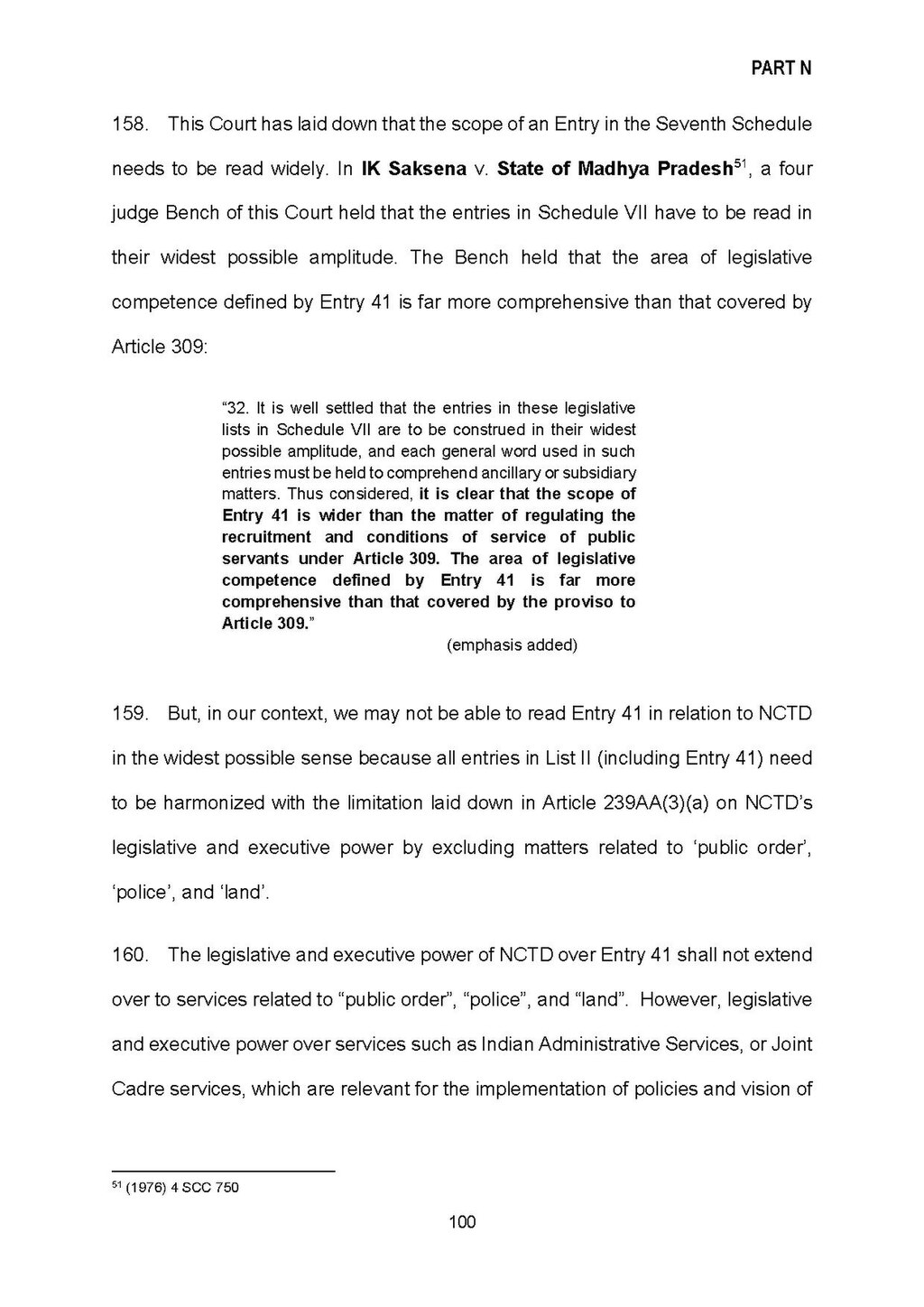158. This Court has laid down that the scope of an Entry in the Seventh Schedule needs to be read widely. In IK Saksena v. State of Madhya Pradesh[1], a four judge Bench of this Court held that the entries in Schedule VII have to be read in their widest possible amplitude. The Bench held that the area of legislative competence defined by Entry 41 is far more comprehensive than that covered by Article 309:
“32. It is well settled that the entries in these legislative lists in Schedule VII are to be construed in their widest possible amplitude, and each general word used in such entries must be held to comprehend ancillary or subsidiary matters. Thus considered, it is clear that the scope of Entry 41 is wider than the matter of regulating the recruitment and conditions of service of public servants under Article 309. The area of legislative competence defined by Entry 41 is far more comprehensive than that covered by the proviso to Article 309.”
(emphasis added)
159. But, in our context, we may not be able to read Entry 41 in relation to NCTD in the widest possible sense because all entries in List II (including Entry 41) need to be harmonized with the limitation laid down in Article 239AA(3)(a) on NCTD’s legislative and executive power by excluding matters related to ‘public order’, ‘police’, and ‘land’.
160. The legislative and executive power of NCTD over Entry 41 shall not extend over to services related to “public order”, “police”, and “land”. However, legislative and executive power over services such as Indian Administrative Services, or Joint Cadre services, which are relevant for the implementation of policies and vision of
- ↑ (1976) 4 SCC 750
100
